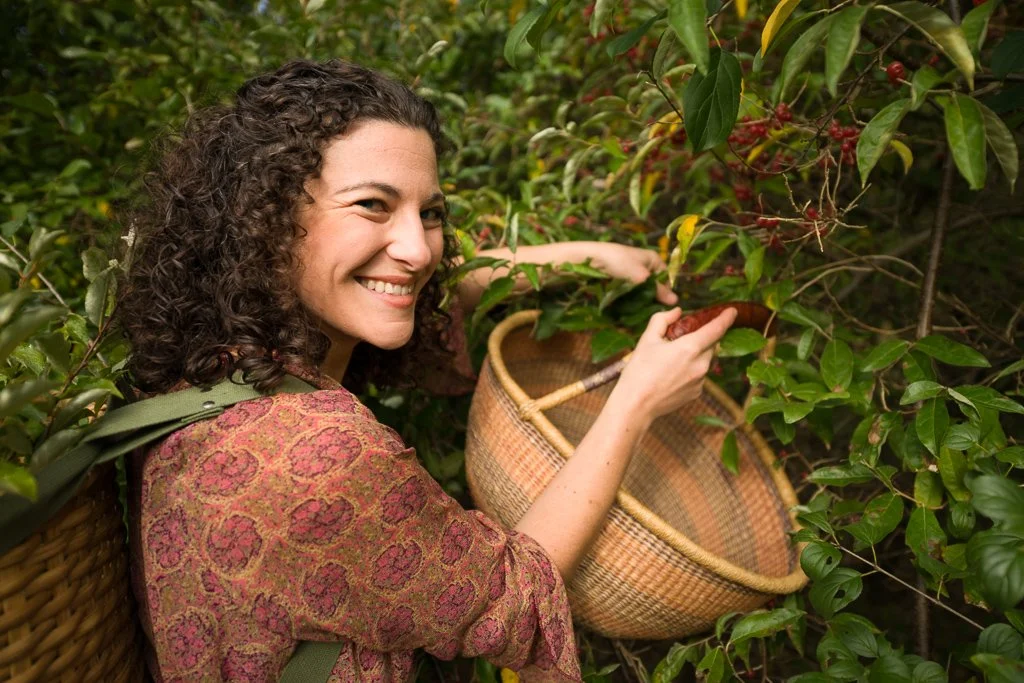Saturday, April 2, 2022
Jessica LaBrie
Lenten Tea for the Soul
INTRO: Faced with the challenge / opportunity to offer a live stream of our Sunday evening Compline services throughout Lent, St. John’s Director of Technology Integration Olin Johannessen began thinking of ways to help online participants get into the proper mindset, to bring peace and meditation into their experience of Compline when cut off from the environment in which this service is specially made. This wondering inspired Olin to consider the untapped senses of smell and taste in the digital world and decided to reach out to one of his oldest friends, Jessica LaBrie, the Wise Woman founder of Blackbird’s Daughter Botanicals, a local herbal apothecary in Barrington, NH. Olin asked Jess if she could create a custom tea blend for our Lenten season, an invitation she eagerly accepted. Please enjoy reading her description of the St. John’s Lenten Tea below. Tea will be available at church this Sunday and can be arranged for pickup or drop off by calling the office at 603-436-8283.
AS YOU MOVE THROUGH THIS SEASON OF LENT, here is a tea blend to help you focus your intentions, strengthen your devotion, and find comfort and restoration in prayer, perhaps while listening to the Compline choir.
Throughout time and across all cultures, plants have always held spiritual and symbolic significance. Below are directions and the herbs in your Lenten Tea, with a description of some of their meanings. They were all grown, gathered, and blended with reverence, stewardship of, and devotion to the Earth and all Creation, and packaged by the loving members of SJC Staff.
To brew with prayer: Hold the bag in between your hands and settle yourself. Rub the sachet to crumble the herbs and release the scent and flavor. Place in mug, add boiling water, and cover, allowing it to steep for several minutes. You can use that time to focus on your breath, letting the stress of the day leave you. Relax into the music. When you remove the tea bag, press it with a spoon to release the last, most concentrated drops. Sometimes we, too, must be broken apart, put in hot water, and experience pressure for our strongest power and goodness to be released - prayer can help. If you choose to add honey, give a prayer of thanks to the bees, those sacred pollinators who do so much to steward and sweeten the world. May you do so as well. After you’re done with your tea, simply untie the bag, compost the spent herbs, and rinse the reusable bag*.
Note: This tea is safe for all ages and stages of life, and those breastfeeding or on medication.
*We will work to source reusable tea bags, but for this batch the tea is packaged in single-use paper tea bags.
THE TEA
Dandelion - A symbol of growth, hope, and healing, dandelion is also a bitter herb and can symbolize the bitter tears of the Israelites. It is one of the first plants to come up in Spring, symbolizing Christ’s rebirth. In herbalism, dandelion helps flush out impurities and cleanse the body, just as this sacred Lenten time helps you cleanse yourself spiritually. The seed heads are commonly picked and blown to make a wish, spreading the seeds at the same time - what do you wish for, and how will you spread hope in the world?
Hibiscus - Red to symbolize the blood of Christ, and an herb that strengthens the heart, literally and figuratively.
Lavender - Another bitter (yet fragrant) herb, lavender symbolizes purity, silence, devotion, serenity, grace, and calmness. The color purple is associated with the crown chakra, which is the energy center associated with higher purpose and spiritual connectivity. In herbalism, we honor the purifying, healing, and cleansing powers of this herb. The name “lavender” comes from the Latin lavare (to wash) - so let us think of those who washed Jesus’ feet, and how fasting, prayer, and even tears may wash us clean.
Lemon Balm - The lemon balm plant symbolizes virtue, sympathy and compassion. Drinking lemon balm tea while meditating is thought to stimulate trust and patience. Faith is a balm to your heart, as lemon balm can be a soothing balm to your body.
Passionflower - This plant is strongly associated with Jesus, due to the flower’s appearance. Dark inner flower markings recall Christ's passion; the circles around the inner cross symbolize the circular nature of life; the outward spokes of color alternately indicate hope and the whips used on Jesus during the Crucifixion; the ten petals represent ten faithful apostles; three stigmas represent three nails; five anthers are for the five wounds in Jesus' body; and the blue and white colors represent Purity and Heaven. In herbalism, passionflower helps us relax, calm down, and be still.
Nettle - An herb known for its sting, as the crown of thorns stung, nettle is a nutritive herb; nourishing us through a time of fasting, humility, and giving energy to the body so we can do good in the world. Also an early Spring green, symbolizing rebirth and renewal.
Plantain - This humble plant grows along roadsides and paths, representing the pilgrim’s journey to Christ. Herbally, plantain helps heal the skin and takes away the pain of insect bites and stings - so let us think of the pain that Jesus suffered on our behalf, and how prayer, humility, and kindness toward others can be a balm for our own suffering and those of others.
Rosemary - Fidelity and remembrance. For centuries people thought that the rosemary plant would never grow higher than 6 feet in 33 years so as not to stand taller than Christ. In herbalism rosemary is used to help strengthen the memory. Remember the purpose of this holy time.
Spearmint - Long called Cross-mint, may the bright flavor inspire you.



